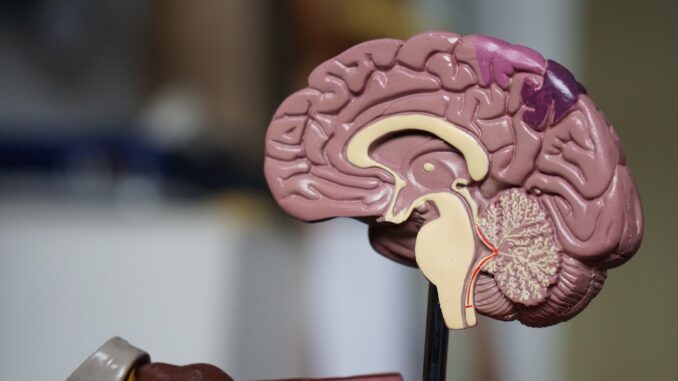
Summary
Dementia with Lewy bodies (DLB) is often misdiagnosed as Alzheimer’s disease, hindering appropriate care. New research suggests that comprehensive cognitive testing offers a promising pathway for earlier and more accurate diagnosis of DLB. This breakthrough could significantly improve the lives of those affected by this challenging condition by ensuring they receive timely and tailored support.
Main Story
Okay, let’s talk about Dementia with Lewy Bodies, or DLB as it’s often called. It’s actually the second most common type of neurodegenerative dementia, only Alzheimer’s is more prevalent. But here’s the kicker: DLB’s symptoms? They love to play hide-and-seek with those of other dementias, especially Alzheimer’s. This can cause major confusion, and lead to misdiagnosis. And frankly, that’s a big problem.
Imagine, you’re told you have one thing, but it’s actually something else entirely. The treatments for DLB are totally different than those for Alzheimer’s, so getting it right matters…a lot.
So, what’s new on the horizon? Well a recent study – published in Alzheimer’s & Dementia – it’s shining a light on comprehensive cognitive testing. It seems, this could be a game-changer for diagnosing DLB. The researchers did a meta-analysis, digging into a bunch of studies on people in the early, pre-dementia stages of DLB. And guess what? They found distinct cognitive patterns.
Basically, the study pointed out that before full-blown dementia sets in, those with DLB have bigger problems with attention, processing speed, and executive function compared to people with early Alzheimer’s. However, they often have better immediate recall and memory. Who knew? This difference, this pattern, it could be a key diagnostic marker. Think of it as a new tool to help doctors nail down the diagnosis earlier, and accurately.
What does this mean in practice? It’s actually pretty straightforward, incorporating cognitive tests into assessments is key for clinicians. They’ll be able to better tell the difference between DLB and similar conditions, like Alzheimer’s. I mean, let’s be honest: early diagnosis is critical. It sets the stage for the right care strategies tailored to the specific needs of the individual. Plus, cognitive testing is often cheaper and more accessible than fancy biomarker testing. It means more people, even in resource-limited settings, can get the correct diagnosis. That’s a win-win.
But you know, it’s not just about slapping a label on the condition. It opens up doors to a bunch of interventions. Support systems which can drastically improve the quality of life for those affected, and their families. For example:
- Medication Management: DLB, it doesn’t always play nice with the same meds used for other dementias. Getting the diagnosis early? It allows doctors to quickly start the right medication strategies. To manage symptoms, and potentially slow down the disease.
- Non-Pharmacological Interventions: Cognitive stimulation, physical therapy, occupational therapy…these can all make a huge difference in managing symptoms and keeping people as functional as possible.
- Supportive Care: Early diagnosis is also good for individuals. Its also good for their families to connect with support groups and resources that are specifically for those with DLB. This can provide invaluable emotional, social, and practical support throughout the journey.
What’s next? The future of DLB diagnosis? The development of even more refined cognitive tests and diagnostic criteria is a hot area of research. Researchers are working hard to fine-tune the cognitive profile of DLB, trying to distinguish it from other dementias with even greater accuracy. These advancements, they promise to improve the accuracy and speed of DLB diagnosis. Ultimately leading to better outcomes for everyone affected by this challenging condition.
Honestly, this progress in understanding and diagnosing DLB? I think it’s great news. It offers a beacon of hope to individuals, their families, and healthcare professionals alike. As our diagnostic tools get better and more accessible, we’re moving towards a future where DLB is diagnosed early, people get the best possible care and support. And that’s something to celebrate.


So, DLB symptoms play hide-and-seek, huh? Sounds like my car keys. Maybe we should develop a cognitive test for misplaced items? Think of the possibilities! We could revolutionize the diagnosis of “Where Did I Put That?” syndrome.
That’s a fun idea! You’re right, the frustration of misplaced items feels universal. Perhaps a gamified memory app that tracks how long it takes to find things? It could offer personalized strategies based on search patterns and potentially flag early cognitive changes too.
Editor: MedTechNews.Uk
Thank you to our Sponsor Esdebe – https://esdebe.com
DLB: the neurological chameleon! So, attention and processing speed get the short end of the stick? I wonder if speed dating could become a cognitive test? “Assess executive function while choosing between potential partners in 60 seconds! Bonus points for remembering their name.”
That’s such a creative idea! The “neurological chameleon” analogy really captures the diagnostic challenge of DLB. And you’re right, speed dating could highlight those specific cognitive deficits. Imagine the insights we could gain! Perhaps it could be a research project?
Editor: MedTechNews.Uk
Thank you to our Sponsor Esdebe – https://esdebe.com
The meta-analysis identifying distinct cognitive patterns in early DLB is a significant step. The emphasis on attention, processing speed, and executive function deficits offers a more targeted diagnostic approach compared to solely relying on memory recall.
Absolutely! It’s fantastic how the meta-analysis is shifting focus to these specific cognitive areas. Moving beyond just memory recall could lead to much earlier and more accurate diagnoses, making a real difference in patient care.
Editor: MedTechNews.Uk
Thank you to our Sponsor Esdebe – https://esdebe.com
The study highlights differences in attention, processing speed, and executive function. I’m curious, what specific cognitive tests were used in the meta-analysis to identify these distinct patterns?
That’s a great question! The meta-analysis included a range of tests, such as the Stroop test for attention and Trail Making for executive function. Looking at these specific tests really helped highlight the distinct cognitive profiles.
Editor: MedTechNews.Uk
Thank you to our Sponsor Esdebe – https://esdebe.com